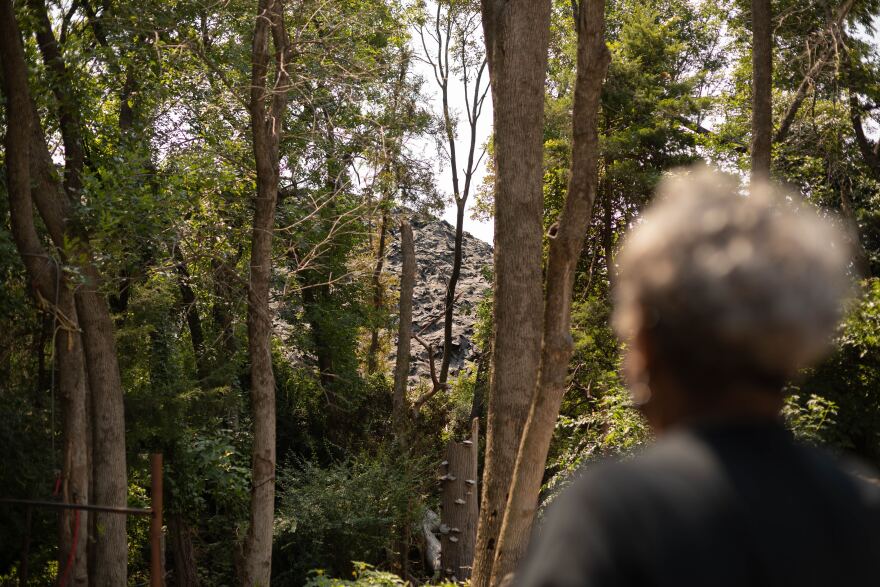The Dallas City Council voted unanimously to acquire the site of what used to be Shingle Mountain, where 100,000 tons of toxic waste formerly stood.
The 4.3 acres of land sits near the intersection of South Central Expressway and Choate Road. CCR Equity Holdings was the owner of the site.Residents of Floral Farms say this may be the first step to creating their much desired park.
Among the items unanimously approved by the Dallas City Council so far today:
— Office of Mayor Eric Johnson (@DallasMayor) June 9, 2021
- Increase in the senior homestead exemption
- Denial of Atmos rate increase request
- Acquisition of former Shingle Mountain site
- Increase in city reforestation fund
“This acquisition is important. This is a long time coming. This is something that we need to get done in order to help the community heal,” said Omar Narvaez, a city council member who serves as Chair of the Environment and Sustainability Committee.
Six people spoke on the Shingle Mountain agenda item: Paul Quinn College assistant professor Evelyn Mayo, Floral Farms residents Genaro Viniegra and Marsha Jackson, Inclusive Communities Project’s community outreach director Jennifer Rangel, community advocate Kathryn Bazan, and HKS vice president architect Erin Peavey.
“We want to see something positive come out of it [Shingle Mountain] and just encourage you [city council] to help us move that vision the community and the neighborhood has with that land and pursue it to become something positive out of it," Viniegra said.
Floral Farms resident Marsha Jackson emphasized community healing.
“This is one way to begin the healing in this neighborhood. And I hope that you guys will take this in consideration and acquire property allow our community to grow and help the healing here,” Jackson said.
Thank you @atkins_tennell for recognizing the "residents have been great leadership in the community" and for voting to acquire the land where @ShingleMountain was, and thank you @VoteOmarNarvaez - "today we right a wrong". One step closer to our park: https://t.co/yS8B7qrbd1
— Neighbors United/Vecinos Unidos (@NeighborsUnidos) June 9, 2021
Council member Tennell Atkins, who represents District 8 and the area where Shingle Mountain is located, said that the city expects to transfer ownership of the site in the next couple of months.
“I want to thank my fellow council members, city staff, and the ongoing support and advocacy of community members and stakeholders," Atkins said via email.
After Shingle Mountain was removed earlier this year, it was then monitored by Modern Geosciences, an environmental advisory group that works in Texas and across the U.S. An environmental assessment has been promised from the city. Atkins said during the council meeting that the report will be available online this Friday.
Last month, activists and community organizers hosted an event urging the city to rezone the site. At the event, residents brought up their neighborhood-led plan — something they’ve been chipping away at for close to a year now.
The plan lays out what they want on the former Shingle Mountain site, and a park is at the top of their list. It also calls for rezoning their neighborhood, which is currently zoned for industrial use.
"It's wrong to have zoning in effect that prohibits you from being able to simply do simple things like improve the quality of life in your neighborhood," Paul Quinn College President Michael Sorrell said at the event.
The decision will cost the city nothing. Floral Farms residents and members of Downwinders At Risk , Inclusive Communities Project and Southern Sector Rising are sending a letter to city council urging them to vote to acquire the land and turn it into a park.
Got a tip? Alejandra Martinez is a Report For America corps member and writes about the impact of COVID-19 on underserved communities for KERA News. Email Alejandra at amartinez@kera.org. You can follow Alejandra on Twitter @alereports.
KERA News is made possible through the generosity of our members. If you find this reporting valuable, consider making a tax-deductible gift today. Thank you.







